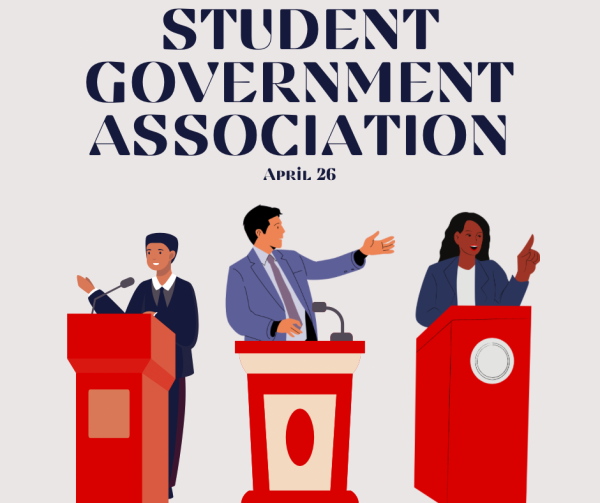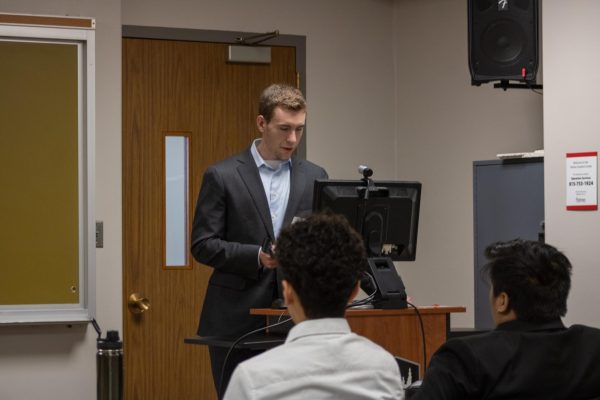Democrats vs. Republicans: The Great Debate
February 21, 2006
There was much head-shaking, murmuring and eye-rolling amongst College Democrats and College Republicans in a debate held Monday night in the Holmes Student Center’s Heritage Room.
Weaknesses in parties, deficit issues, textbook prices and school vouchers were just some of the topics discussed in the two hour debate. Four panelists asked questions of both sides for three rounds with Rich Schmidt, assistant chair and professor of political science, as mediator.
Identifying weaknesses
In the first round, the starting side was given five minutes to answer, and each side was given a three minute rebuttal. The College Republicans won the coin toss and responded first to the starting question, which asked both parties to identify weaknesses in their party’s ideology.
The College Republicans identified their two weaknesses as issues with immigration and finding a balance between beliefs and national security.
“I think Bush and Republicans have done a fine job balancing belief with national security,” said Andrew Bogda, freshman geography major and College Republican.
The College Democrats identified structure and clarity of their message as weaknesses in their party.
Historically, Democrats have stood for helping the poor, women’s rights, middle-class support and civil rights, said Ryan Kerchner, a senior political science major and College Democrat.
In rebuttals, Kerchner said Republicans exploit religion through fear about topics such as abortion, stem cell research, gay marriage and gay rights.
Fueling the debate
Two more questions were asked during round one. The second concerned each party’s stance on school vouchers, which the Democrats opposed and the Republicans supported. The third and final question asked each party how they felt about purchasing cheaper medications from Canada, which the Republicans opposed and the Democrats supported.
The second round of the debate was meant to be unbalanced. Each party took turns answering the question first. The side which answered first was given five minutes and the opposing side was given a three-minute rebuttal.
Questions in the second round concerned the United States’ current issues with Iran. Both parties agreed the U.S. needs international support before going against another country. Concerns with foreign policy were also discussed, and two education topics were addressed.
Participants were asked how they would make American students more competitive. Here the College Democrats expressed their distaste for the No Child Left Behind Act.
“The problem with the No Child Left Behind Act is if a school doesn’t meet a certain criteria, their funding is cut,” said Kevin Malone, a senior political science major and College Democrat.
The third round presented both parties with a question they had to answer impromptu. Each side was given five minutes and the other side a three minute rebuttal.













